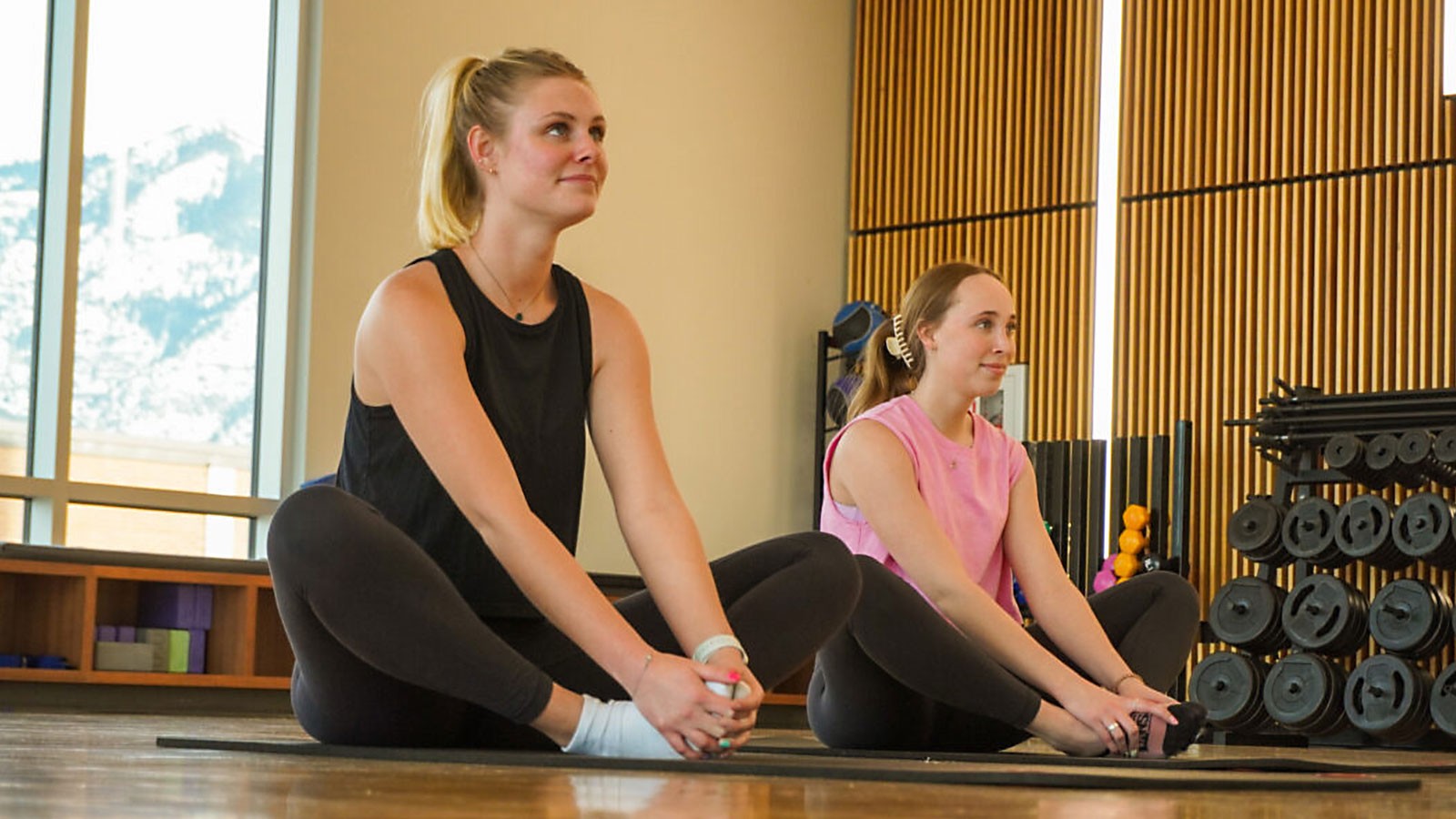Researcher Exploring Health Benefits of Laughter Yoga at USU
By Brielle Carr |
Photo illustration by Phil Weber/Utah Statesman.
Utah State Today regularly highlights work created by the talented student journalists at Utah State University. The following story was published in The Utah Statesman prior to its inclusion in Utah State Today.
The Natural Center for Biotechnology Information found 60-80% of primary care visits in the U.S. are related to stress.
Matthew Wappett is the executive director of Utah State University’s Institute for Disability Research Policy and Practice. He conducts research on laughter and the effect it can have on those experiencing stress and mental illness.
“We need some stress in our lives to get out of bed in the morning. The problem comes that we frequently push ourselves too hard. And we end up in a state of what’s called distress,” Wappett said. “And when you’re stressed all the time, what ends up happening is there’s a whole host of physiological changes that occur within your body that actually lead to a deterioration in mental and physical health.”
According to Wappett, stress is a fight and flight response and all animals have it.
When animals face danger, a stress response causes their heart rate and blood pressure to increase. This stress pushes them to decide whether to fight or escape. Humans react the same way.
“As humans, though, we can keep the stress response turned on all the time, because we have this awesome brain that tells us how terrible the past was and how awful the future is going to be,” Wappett said.
Wappett’s study of stress and laughter stemmed from his studies at Harvard Medical School and later participating in and instructing laughter yoga.
Laughter yoga was started in India by Madan Kataria, who found laughter to be healthy. Eventually he designed what we know today as laughter yoga.
“He came up with a bunch of silly exercises, using fake laughter. … Eventually you find it so silly that you’re really happy and you relax,” Wappett said. “Historically there were all these different arms of yoga, and laughter yoga is just one of those arms.”
USU began to use laughter yoga in the Honors program as an instrument for the students to destress, but the coronavirus quickly put an end to it.
Turning off the stress response is no easy task and that’s where yoga, meditation, laughter and exercise come in.
Kyle McMullin, a junior at USU, was recently introduced to puppy yoga at the Elevation Rock Gym in North Logan and loved it. Puppy yoga is the traditional yoga practice, but you are surrounded by puppies.
“When you do tabletop, she puts the puppy on you and drapes the paws over your shoulders and see how long they stay there and it’s really cute,” McMullin said. “They’re just a lot where you’re holding them or raising them up like Simba. I think if puppies don’t help your mental health, what else does?”
American medical doctor and cardiologist Herbert Benson studied blood pressure and stress and found people can turn off the stress response with a relaxation response.
This can be done through meditation and repetition.
“He found through his research, the relaxation response essentially has two steps,” Wappett said. “One is repetition of a word sound braze muscular activity. And the second step is the passive return to that repetition when your mind wanders.”
It’s common in yoga sessions and meditation sessions for the instructor to emphasize focus on the breath, and this is why. Repetitive exercises like running, weightlifting and climbing or activities like knitting, fishing and painting work in a similar way.
“The human body was designed to move, just as any other animal,” Wappett said. “That’s the problem with modern culture is we don’t move enough. We’re animals just like animals out in the wild, and animals move and that keeps them healthy.”
Wappett further stated stress has a direct effect on mental health and emphasized the need for meditation and exercise in everyday life.
To read more about Benson’s studies of the relaxation response, visit health.harvard.edu/blog/using-the-relaxation-response-to-reduce-stress-20101110780.
WRITER
Brielle Carr
Student Reporter
Utah Statesman
Brielle.Carr@usu.edu
CONTACT
Matthew Wappett
Executive Director
Institute for Disability Research, Policy, & Practice
435-797-0836
wappett@usu.edu
TOPICS
Health 308stories Wellness 161storiesComments and questions regarding this article may be directed to the contact person listed on this page.







